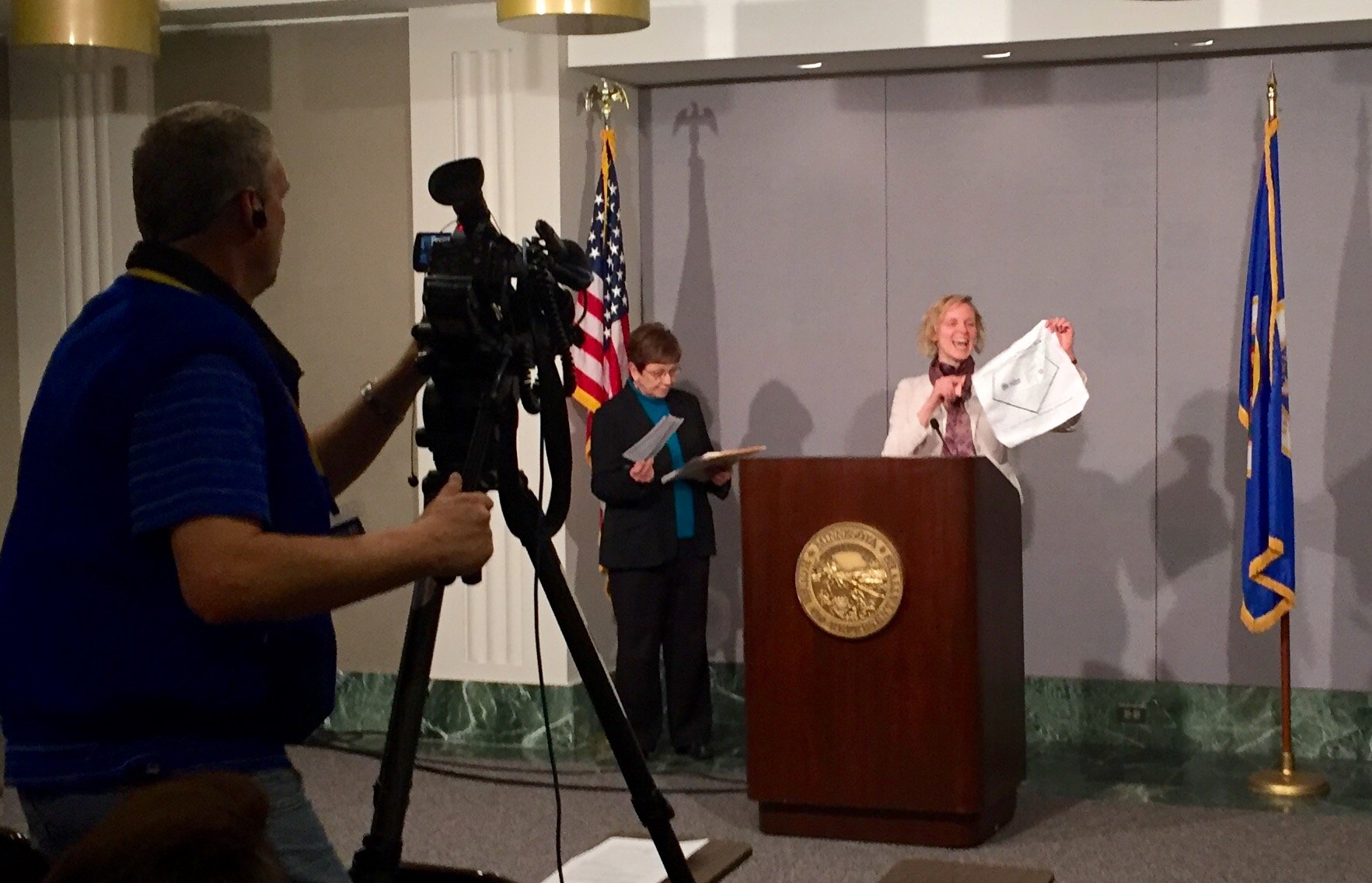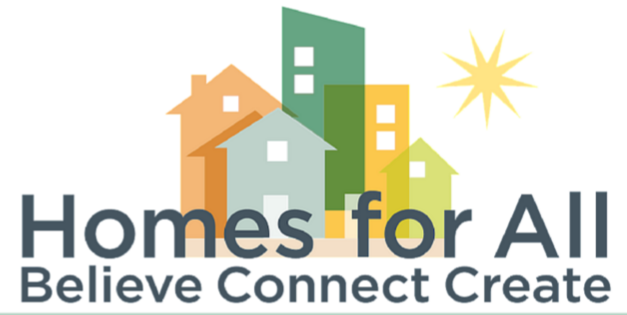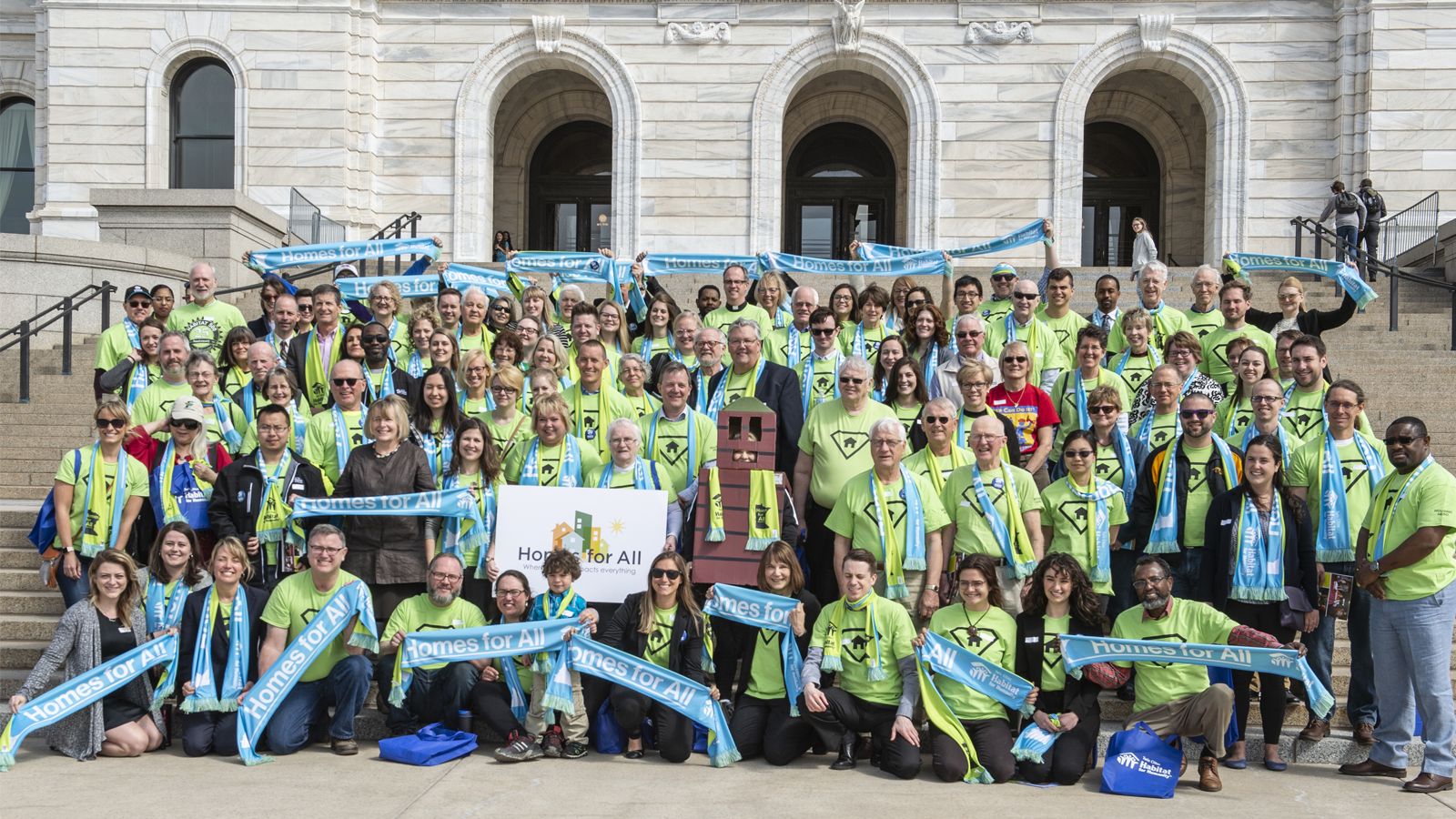Thousands of Minnesotans would benefit from Homes for All bill
A broad, statewide coalition known as Homes for All is calling on lawmakers to approve $130 million in bonding for housing-related developments...
1 min read
 Twin Cities Habitat for Humanity
:
5:45 PM on January 4, 2012
Twin Cities Habitat for Humanity
:
5:45 PM on January 4, 2012
Did you know that 2012 is a bonding year at the Minnesota legislature? Want to learn more about how bonding works?
What are bonds?
Without loans, it would be difficult for most of us to buy a home, a car or go to college. Just like you take out a loan to pay for college, the state sometimes needs to take out a loan to pay for major projects like upgrades to wastewater treatment plants, new facilities at universities, museums, parks and trails, flood mitigation and bridges. Instead of turning to a bank, the state raises the funds by issuing a bond. When investors buy a bond, they are essentially lending money to the state, and in return they receive an interest payment for the lifetime of the loan as well as a repayment of their investment. The bond market works like the stock market but is almost eight times as large.
Why bonds instead of a bank loan?
States and corporations prefer bonds to bank loans because the interest rates are lower and the terms are more flexible.
2012: A Bonding Year for Minnesota
In Minnesota, we generally develop a two-year budget in an odd year and we work on bonding during an even year. Often lawmakers pass a smaller bonding bill during the budget year, but bonding is more of the focus during an even year. In early 2012, the Governor will begin the bonding discussion by offering his bonding package; members of the legislature will then respond with their own bonding bill(s). Expect to see many discussions about bonding during the 2012 Legislative Session!
Bonding for Housing
Minnesota Housing Finance Agency and housing advocates like Twin Cities Habitat for Humanity have asked the Governor to include bonds for housing in his proposal, which would include $30 million in housing infrastructure bonds to address affordable housing infrastructure needs in communities throughout the state.
Funds will be used to:
* Preserve existing federally subsidized rental housing
* Stabilize communities impacted by the foreclosure crisis by creating new affordable housing opportunities through rental units and community land trusts, and
* Construct or acquire and rehabilitate permanent supportive housing, particularly for persons experiencing or at risk for of experiencing long-term homelessness.
* Finance $10 million in General Obligation bonds for public housing preservation.
This infrastructure, a continuum of affordable housing options, will benefit hundreds of low- and moderate-income households.
Join us!
You can learn more about bonding and our other advocacy and policy work on our website at www.tchabitat.org/advocate. Or Consider becoming a Legislative Ambassador by contacting Trista.matascastillo@tchabitat.org
Compiled by Trista Matascastillo. Taken with permission from Darielle Dannon, MCCD blog.
Your gift unlocks bright futures! Donate now to create, preserve, and promote affordable homeownership in the Twin Cities.

A broad, statewide coalition known as Homes for All is calling on lawmakers to approve $130 million in bonding for housing-related developments...

Guest Blog by Cassie Paulsen, Twin Cities Habitat Staff Last week, Becky shared the history of the Homes for All alliance and Habitat Housing...

Minnesota’s 2018 legislative session ended on Sunday, May 20, with a flurry of activity in the hours before the constitutional deadline. With only...